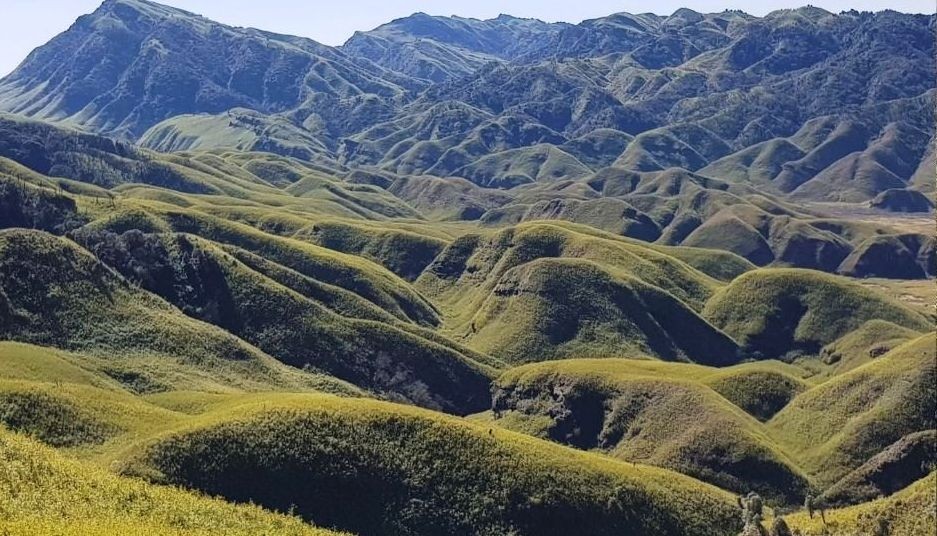
Morung Express News
Dimapur | November 1
A substantial public disagreement has emerged in Nagaland over the State Government’s proposal to develop Dzükou Valley into a global tourist destination through a Rs 250-crore eco-tourism project, according to a recent weekly poll.
The poll conducted by The Morung Express, which sought public opinion on the matter, revealed overwhelming opposition, with 92% of respondents rejecting the plan outright, citing grave ecological and cultural concerns. In contrast, only 6% supported the idea, largely for economic reasons, while 2% remained undecided, saying their support would depend on how the project is executed.
The dominant sentiment among respondents reflects a strong instinct to safeguard Dzükou’s pristine environment. Many described the valley as a “God-given” natural heritage, arguing that the project threatens its fragile ecosystem.
“A fragile ecosystem like Dzükou needs to be preserved in its pristine beauty without human interference and greed for money. I strongly disagree with the government’s proposal,” one respondent stated. Similar comments echoed across the survey, with sentiments like “Leave Dzükou alone!” and “Let it be as God created.”
Several respondents warned that commercialization would permanently alter the valley’s character. “Dzükou Valley will not be ‘the Dzükou Valley’ once the word ‘development’ by government encroaches,” one wrote. Another added, “Once commercialized, Dzükou will be exploited beyond recognition, and the loss will be irreversible.”
A notable share of criticism was directed at the State Government itself, reflecting public distrust in its ability to execute large-scale projects transparently. Many pointed to long-pending infrastructure such as Dimapur Stadium and the High Court building.
“Rs 245 crore will be in their pocket. Please finish the High Court, Dimapur Stadium, etc.,” a respondent remarked. Another questioned, “Rs 250 crore sounds like a magic number. How much will actually be spent on the ground? How much will evaporate or end up in cronies’ pockets?”
Respondents also argued that the State’s poor infrastructure, especially roads, should take precedence. Comments such as “Good roads first,” “We want better roads in all districts,” and “Use that money to build proper roads and drainage” appeared frequently.
Some respondents expressed a sense of cultural betrayal, recalling the valley’s long-held protected status. “As a child, I heard how Nagas protected Dzükou for years and even refused film shootings to prevent exploitation by outsiders. But now, I don't understand what is wrong with our so-called leaders,” a respondent wrote.
There were also concerns that improved road access and luxury facilities could undermine local livelihoods tied to trek-based tourism. “Building roads will take away jobs from local trekking guides, food stall owners, and lodge operators,” one respondent argued.
A small minority supported the project, saying it could boost the State’s economy and tourism revenue. One even proposed developing Dzükou into the “world’s first natural valley resort.” However, even among supporters, there were caveats. “This proposal is good for State revenue, but after completion, the State Government should have 100% control—not private individuals or organisations,” a comment stated.
Respondents in the “Not sure” category indicated their stance would depend largely on the project’s transparency and ecological safeguards.






